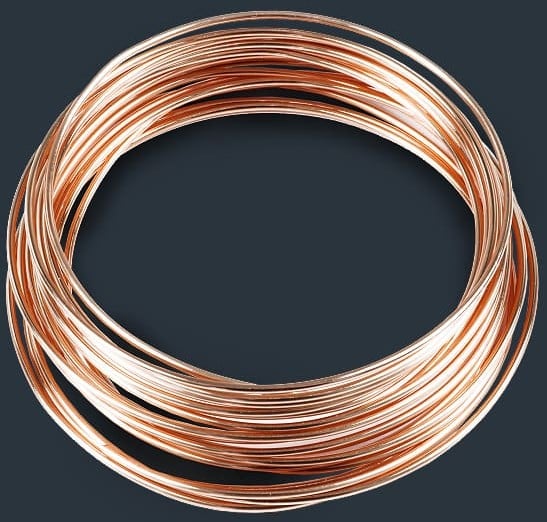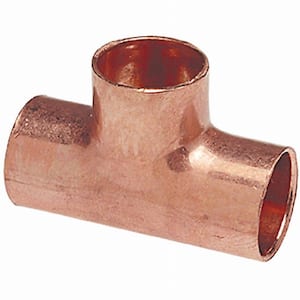Exactly how to Choose the Right Copper Products for Your Do It Yourself Projects and Home Renovations
Exactly how to Choose the Right Copper Products for Your Do It Yourself Projects and Home Renovations
Blog Article
Checking Out the Diverse Applications of Copper Products in Modern Industries
Copper products have actually developed themselves as crucial components throughout a myriad of contemporary markets, mainly as a result of their exceptional conductivity, malleability, and resistance to deterioration. From enhancing the effectiveness of electrical systems to playing a critical duty in renewable resource modern technologies, the adaptability of copper is apparent. Furthermore, its recyclability settings it as a sustainable selection in manufacturing and electronic devices. As industries significantly prioritize innovation and sustainability, the diverse applications of copper warrant a closer examination, specifically regarding their prospective impact on future ecological techniques and technological improvements.
Electrical Applications of Copper
Copper is a vital material in the electrical industry, representing around 60% of the overall need for non-ferrous steels globally - Copper Products. Its superior electric conductivity, which is nearly two times that of light weight aluminum, makes it the recommended choice for a wide variety of electrical applications. From electrical wiring systems in household and business buildings to high-voltage power transmission lines, copper ensures performance and integrity in electrical power distribution
Along with wiring, copper is essential to the manufacturing of electrical components such as transformers, generators, and electric motors. These elements take advantage of copper's thermal conductivity and malleability, essential for heat dissipation and reliable performance. Copper's resistance to deterioration improves the lifespan and durability of electrical systems, making it an economical solution in the long term.
The development of sustainable energy resources, such as solar and wind power, has actually further boosted the demand for copper in electrical applications. As sectors transition in the direction of lasting energy remedies, copper's function comes to be even a lot more crucial. Overall, the versatility and efficiency attributes of copper solidify its status as a cornerstone material within the electric industry, driving advancement and efficiency across different applications.
Plumbing and Piping Solutions
In modern plumbing systems, the option of materials significantly influences both performance and long life. Copper has become a preferred choice due to its unique buildings, consisting of rust resistance and antimicrobial attributes. These characteristics guarantee that copper piping continues to be secure and resilient for transferring potable water, an important factor to consider in residential and commercial applications.
Among the essential benefits of copper in plumbing is its capacity to stand up to heats and pressures, making it appropriate for a selection of applications, from warm water systems to home heating and cooling networks. Additionally, copper's adaptability enables for less complicated setup in intricate piping layouts, lowering the threat of failings and leakages.
One more noteworthy advantage is copper's long life-span, often surpassing 50 years with proper upkeep. This durability not just reduces substitute costs however also contributes to sustainable practices by lowering waste. Copper's recyclability straightens with modern ecological standards, promoting a round economy within the pipes industry.
Copper in Renewable Resource
The convenience of copper prolongs past pipes applications, playing an essential duty in the renewable resource field. Its excellent electric and thermal conductivity makes it an essential product in the production and circulation of renewable resource resources, specifically solar and wind power. In photovoltaic panels, copper is used my latest blog post in solar batteries and wiring, promoting efficient energy conversion and transmission. Its resistance to deterioration guarantees durable efficiency, which is vital for optimizing energy output with time.

Furthermore, as the global demand for electrical lorries (EVs) increases, copper's function in battery systems and billing facilities comes to be even extra substantial. The material's capacity to perform electrical power effectively is important to the performance of EV batteries, boosting array and charging rate.
Copper's Role in Electronics
Electronics manufacturing relies greatly on copper's exceptional homes, especially its high electrical visite site conductivity and thermal performance. These qualities make copper a suitable option for a variety of digital parts, consisting of connectors, motherboard, and circuitry. The metal's capacity to efficiently transfer electric signals makes sure very little energy loss, which is crucial in high-performance electronic gadgets.
Additionally, copper's thermal conductivity plays a considerable duty in heat dissipation, protecting sensitive elements from overheating. This is especially important in modern electronics, where compact layouts cause boosted warm generation. Copper is additionally favored for its malleability and ductility, allowing it to be quickly formed into intricate styles that fulfill the demands of innovative digital applications.
With the surge of customer electronics, telecommunications, and electric cars, the need for copper in the electronic devices field remains to expand. As developments in modern technology advance, copper remains indispensable to accomplishing higher efficiency and dependability in digital products. Its recyclability further boosts its allure, as suppliers seek lasting solutions without endangering top quality. Thus, copper stays a keystone material in the ever-expanding field of electronics.
Cutting-edge Uses in Manufacturing

One remarkable application remains in additive manufacturing, where read copper-based products are employed in 3D printing procedures. This enables the creation of intricate geometries and light-weight elements, particularly in the aerospace and auto fields. Additionally, copper's thermal conductivity makes it a suitable selection for heat exchangers, enhancing efficiency in commercial cooling systems.
Furthermore, the rise of clever production has actually seen the unification of copper in IoT gadgets, where its conductive capacities sustain advanced picking up innovations. In the world of eco-friendly energy, copper is crucial in the manufacturing of solar panels and wind turbines, promoting extra reliable power conversion and circulation.
As markets strive for sustainability and development, copper's adaptability and performance proceed to place it as a critical material, driving advancements in production and adding to the development of smarter, extra efficient items.
Verdict
In recap, copper items show amazing versatility across different modern-day industries. Copper Products. Their remarkable conductivity improves electrical applications, while deterioration resistance ensures reliability in pipes. The essential duty of copper in eco-friendly power and its important function in electronic devices underscore its importance ahead of time sustainable methods. In addition, innovative usages in making highlight copper's adaptability and withstanding value. Collectively, these applications highlight copper's crucial payment to technical development and commercial effectiveness in modern culture.
From improving the performance of electrical systems to playing a critical role in renewable energy technologies, the flexibility of copper is noticeable. As industries progressively prioritize innovation and sustainability, the varied applications of copper warrant a closer assessment, particularly concerning their potential influence on future technological improvements and ecological techniques.
The development of renewable power sources, such as solar and wind power, has further boosted the demand for copper in electric applications. Generally, the versatility and efficiency qualities of copper strengthen its status as a keystone product within the electrical field, driving technology and efficiency across different applications.
The adaptability of copper extends beyond plumbing applications, playing an essential duty in the renewable power field.
Report this page